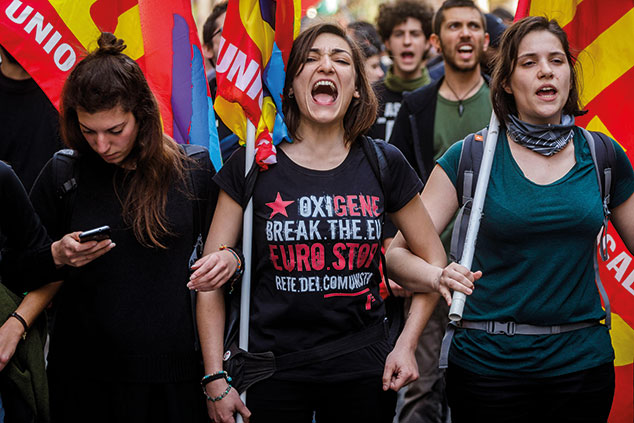
• Merryn recently spoke to Bernard Connolly for the MoneyWeek podcast. This article is taken from that interview. You can listen to their whole conversation here.
Before I met Bernard Connolly recently, I watched his appearance on Panorama in 1997, where he explained clearly why the UK would be mad to join the euro (moneyweek.com/panorama). There were, he said, no “good economic arguments” for the single currency at all; it was clearly a political project – a step on the path towards a European superstate.
If it went ahead, said Connolly, the European Central Bank (ECB) would become a “political football”; voters would soon feel they had “no control over either their politicians or policies”; and Europe would end up with a nasty mix of “economic distress and political despair” leading to “xenophobia, nationalism, (and) a retreat from democracy and free markets”. Connolly got short shrift from some of the other participants. But look around you today and you might think the world would be a better place if more people across the European Union (EU) had listened to him then.
We start our conversation with the sad conclusion that the enmity and discord he predicted 20 years ago are here and affecting us all. Look at how the Greeks feel about the Germans. Look at how those in Italy – who used to be among the most enthusiastic eurozone members – are “now heartily sick of everything to do with the stupid currency”. The acute phase of the 2011/2012 crisis has passed, but much of the EU is now in a state of “chronic pain”, with the young and the poor suffering the most (Connolly is not alone in wondering why the UK’s young voted remain, when they could surely see what was happening to their generation in Italy, Portugal and Greece).
So here’s the question: if this enmity and discord were the inevitable conclusion of the imposition of the euro – something both Connolly and, he says, everyone involved in the practicalities of it, understood – how did it ever get off the ground? Because the political impetus behind it was always (as former European Commission president Jacques Delors said) the eventual creation of a European superstate. The monetary union was always going to come to a fork in the road, when it would either collapse (with a nasty bout of political upheaval), or its participants would be pushed into a single country. Those who craved the latter, says Connolly, were prepared to risk the former (and its worrying potential for “political violence”).
The EU: built on Vichy economics
This, of course, leads to the question of why they wanted a superstate to replace the nation states we know in the first place. For the answer to that, you have to go back to the end of the war, says Connolly. The European Coal and Steel Community (formed in 1951 with the idea that if we “communitise the sinews of war, steel, coal, basic industries – that may go some way to prevent another war”) and then the beginnings of the common market were very much Franco-German arrangements, extensions even of the “economic arrangements between Vichy France and Nazi Germany” (although with France, not Germany, as “top dog”).The idea being that with the Anglo-Saxons on one side and the Soviet Union on the other, the only chance of reasserting themselves on the world stage was to do it together.
Subscribers can read it in the digital edition or app